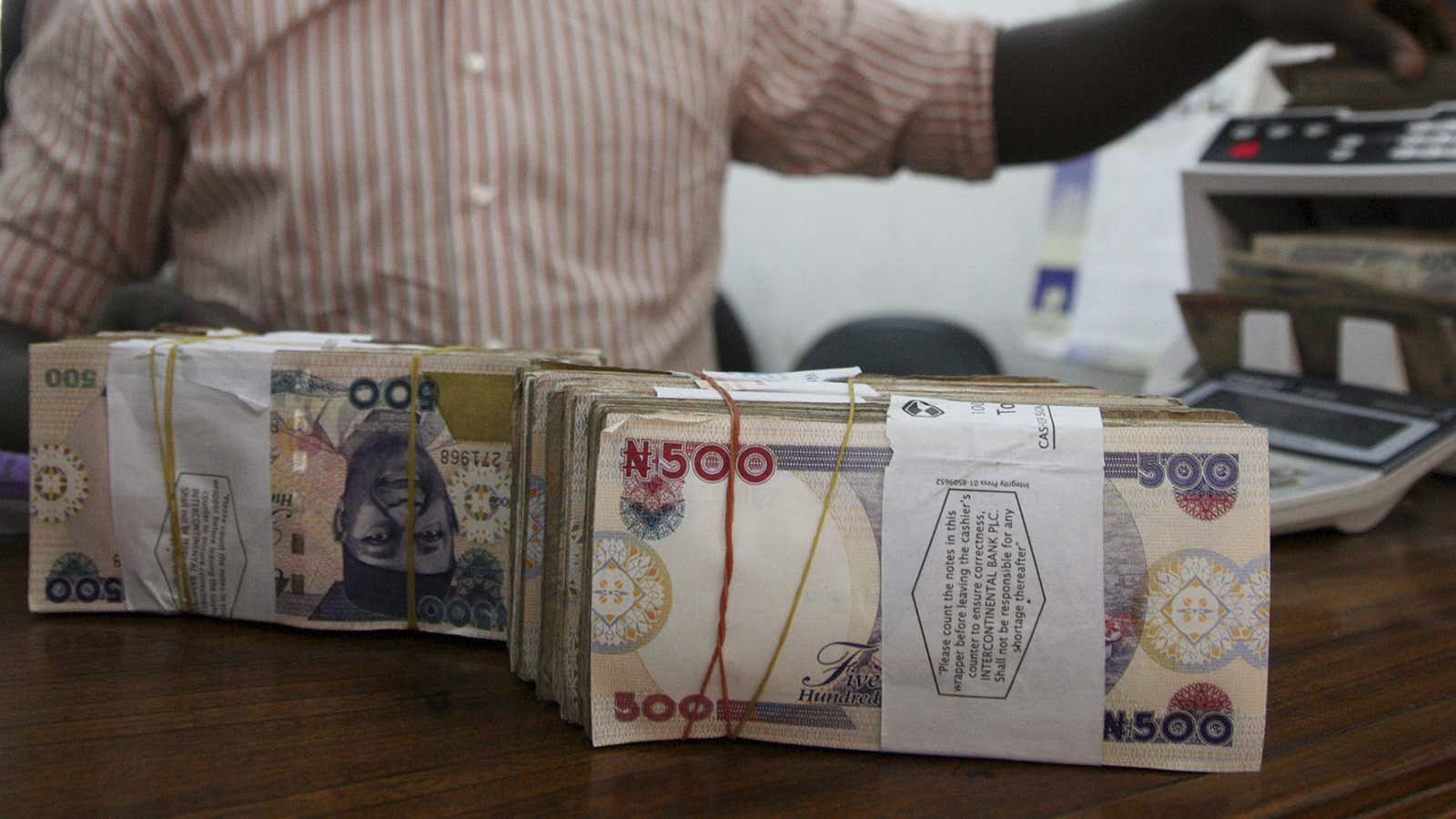Lagos
Nowhere has a nation’s currency value been more arbitrary than in Nigeria.
As you arrive in the country and step into the main arrivals hall at Lagos Murtala Muhammed airport, there are a few official-looking kiosks with electronic displays offering up-to-date exchange rates. A few days ago, they were offering a relatively tight spread of 398-400 naira to the dollar, depending on whether you were buying or selling.
But before you get that far, a voice from behind whispers, “you can get a better price outside”
The stranger with the tip was right. Just outside the airport, one dollar fetched as much as 430 naira.
Apparently, this was a good deal, but not as good as the week before. In recent weeks the naira has blown past 520 to the dollar, as investors lost confidence in the economic machinations of the government and a scarcity of dollars bit hard.
The naira has recently rallied in the parallel markets after the central bank pumped dollars aggressively into the markets. It also announced separate rates for Nigerian students studying abroad, so they can buy at 375 naira to the dollar. This was seen by some as currying favor with the middle classes who can afford to send their kids abroad instead an overcrowded local university. It is one of several patches hastily applied to Nigeria’s broken forex system.
To be clear, the point of these recent moves to inject more dollars into the market is to narrow the spread between the official exchange rate of 315 naira to the dollar and the various parallel rates for different interest groups. Many analysts believe these are steps on the road to a formal devaluation.
In the meantime, almost no individuals and only a few businesses can get dollars at anything close to the official rate. This puts the few people that have access to these rates in a powerful position to exploit the arbitrage. It leaves most other Nigerians frustrated that, yet again, a lucky few are becoming very wealthy, very quickly off the inefficiencies and opaqueness of a system that should have been fixed long ago.
